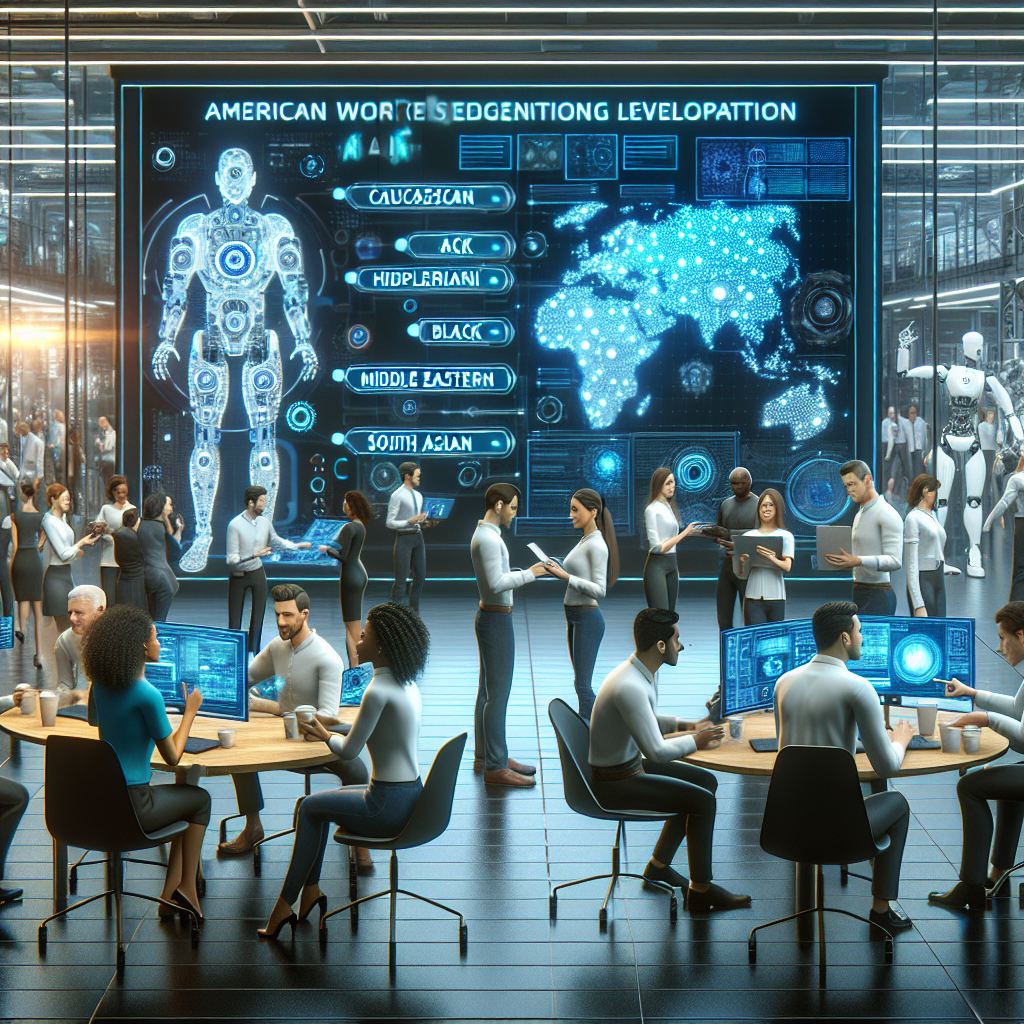J. D. Vance Claims Freeing AI from Regulation is Good for American Workers and Tech Innovators
In the evolving landscape of technology, few debates are as prominent as the regulation of artificial intelligence (AI). The discussions have intensified with the rise of AI applications in various sectors, from healthcare to finance, and even creative industries. Recently, U.S. Senator J. D. Vance has stepped into this debate with a bold claim: he argues that lifting regulations on AI could be beneficial for both American workers and tech innovators.
The Case for Deregulation
Vance’s argument is rooted in the belief that heavy regulation stifles innovation and hampers economic growth. According to him, the key to unlocking the full potential of AI lies in giving it the freedom to develop without the constraints of bureaucratic oversight. He posits that by allowing tech innovators to experiment and create without the fear of regulation, we can foster an environment that encourages breakthroughs and advancements.
This perspective resonates with many in the tech community who believe that regulatory frameworks can often lag behind technological advancements. They fear that excessive regulation could slow down progress, making it challenging for the U.S. to maintain its leadership in AI technology.
The Impact on American Workers
One of the most compelling points made by Vance is the potential positive impact on American workers. He argues that deregulating AI can lead to the creation of new jobs and opportunities. As AI systems become more advanced, they will inevitably lead to the creation of new industries and job roles that we cannot yet imagine.
For instance, the rise of AI technology has already led to the emergence of roles focused on AI ethics, data management, and algorithmic accountability. Vance believes that by unleashing the potential of AI, we can stimulate job creation across various sectors, ultimately benefiting the workforce.
Furthermore, he suggests that AI can enhance productivity, enabling workers to accomplish tasks more efficiently. This could lead to higher wages and improved job satisfaction as workers are empowered with tools that augment their capabilities rather than replace them.
Challenges of Unregulated AI
While Vance’s argument has merit, it is essential to acknowledge the potential challenges of unregulated AI. Critics of his stance point out that without regulation, there is a risk of unethical practices, including data misuse and privacy violations. The unchecked development of AI could exacerbate inequalities and lead to widespread job displacement, particularly in sectors vulnerable to automation.
There are also concerns about the safety and reliability of AI technologies. With inadequate oversight, we may witness the deployment of AI systems that are flawed or biased, causing harm to individuals and communities. The potential for misuse in areas such as surveillance and automated decision-making raises ethical questions that cannot be overlooked.
Vance and his supporters must address these concerns to create a balanced approach that promotes innovation while safeguarding public interests. Engaging with stakeholders from diverse perspectives can help create a framework that encourages responsible AI development.
The Balance Between Innovation and Regulation
The challenge lies in finding a middle ground between fostering innovation and ensuring responsible AI practices. Vance’s vision of a deregulated AI landscape may resonate with many tech advocates, but it is crucial to establish some level of oversight to protect consumers and maintain ethical standards.
One potential solution is to create a flexible regulatory framework that adapts to the rapid pace of technological change. This approach would allow for innovation while ensuring that guidelines are in place to address ethical concerns and protect public interests. Policymakers can collaborate with industry leaders to develop regulations that encourage responsible AI innovation, rather than stifling it.
Additionally, fostering a culture of accountability within tech companies is paramount. Encouraging transparency in AI development processes and outcomes can help build trust among consumers and mitigate concerns about potential misuse. By prioritizing ethical considerations, companies can demonstrate their commitment to responsible innovation, which may ultimately benefit both their reputation and bottom line.
The Future of AI in America
As the debate surrounding AI regulation continues, the future of AI in America hangs in the balance. Vance’s assertion that deregulating AI can benefit American workers and innovators is a bold statement that could shape policies for years to come.
If the U.S. can successfully navigate the challenges of AI development, the potential for economic growth and job creation is immense. By striking a balance between innovation and regulation, we can pave the way for a future where technology enhances our lives while ensuring ethical practices guide its evolution.
In conclusion, J. D. Vance’s position on AI deregulation presents an intriguing perspective on the future of American workers and tech innovators. While the potential benefits of freeing AI from regulation are significant, it is crucial to approach the conversation with caution. The key lies in crafting a regulatory environment that fosters innovation while ensuring ethical considerations remain at the forefront of AI development. Only then can we truly harness the power of artificial intelligence for the greater good.



